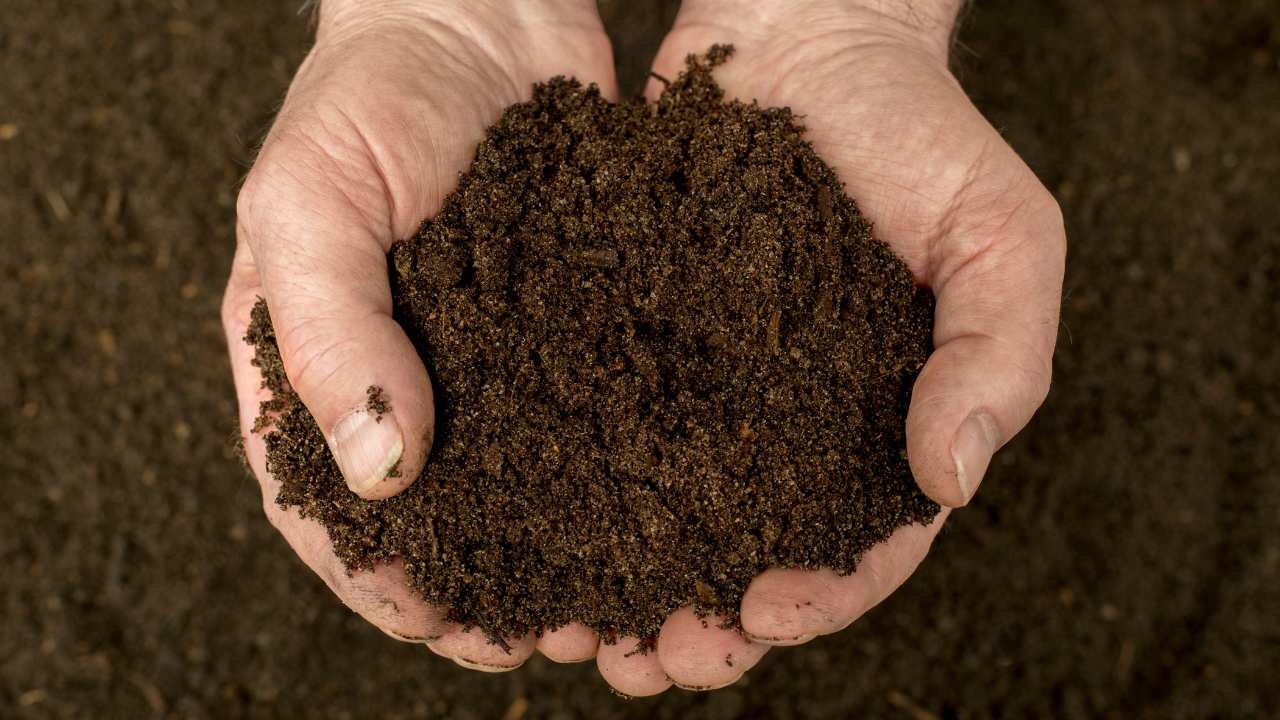Can You Use Old Roses for Compost?
Yes, old roses can be used for compost. They add organic matter as they decompose.
Integrating old roses into your compost is a resourceful way to repurpose garden waste and enhance soil health.
Compost made from roses, along with other green waste, offers a rich source of nutrients for your garden, contributing to the ecosystem’s circular nature.
Proper composting techniques ensure that your rose remnants break down effectively, avoiding any potential disease spread.
It’s crucial to mix these with a balanced blend of brown compost matter, such as dried leaves or cardboard, to optimize the composting process.
This strategy not only recycles your faded blooms but also supports sustainable gardening by returning valuable nutrients to the earth.
The Basics Of Composting
Turning old roses into nutrient-rich compost is a smart way to recycle.
Compost feeds gardens and reduces waste.
Learn the simple steps to make your own compost.
What Is Compost?
Compost is decomposed organic material.
It’s made with plant leftovers, like wilted roses, leaves, and kitchen scraps.
Compost is a natural fertilizer for plants.
Essential Elements Of Compost
To make good compost, mix these elements:
- Greens – This includes grass clippings and old flowers like roses.
- Browns – Add things such as dry leaves, straw, and branches.
- Water – Keep the compost damp, not soaked.
- Air – Turn your compost to help it breathe and break down.
| Material | Type |
|---|---|
| Roses | Greens |
| Leaves | Browns |
| Kitchen Scraps | Greens |
Remember to balance greens and browns.
A healthy compost needs both.
Old roses add green matter, helping compost become a powerful garden booster.

Roses In The Compost Pile
Turning to your garden, you might wonder, can the beauty of roses live on even after they fade?
Roses in the compost pile usually spark curiosity.
Composting roses can seem complex, but with the right tips, it becomes a blooming opportunity!
Pros Of Adding Roses To Compost
When roses grace your compost heap, they bring numerous benefits.
Compost loves diversity, and roses are no exception:
- Boosts Nutrient Content: Rose clippings contribute vital nutrients like nitrogen to the compost mix.
- Improves Structure: Roses help create a varied texture, essential for good compost.
- Balances Greens and Browns: They act as green material, balancing drier brown components like leaves or cardboard.
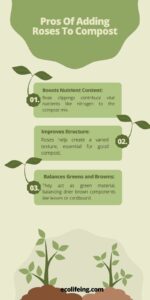
Common Concerns With Composting Roses
A few caution points arise when composting roses.
Being mindful can ensure healthy compost:
| Concern | Action to Take |
|---|---|
| Disease | Avoid adding diseased roses, as they can spread pathogens. |
| Pesticides | Ensure roses are free from chemical treatments that might harm compost life. |
| Thorns | Thorns may not break down easily, so chop or crush rose stems before adding. |
Getting Your Compost Right
Blog Post Snippet: Getting Your Compost Right
Your garden’s best friend could be sitting in that bouquet of wilting roses!
Composting old roses is a wonderful way to recycle nutrients back into your soil.
But, making great compost is all about balance and care.
Let’s break down the essentials for a thriving compost pile, starting with your old roses.
H3 Heading: Balancing Greens and Browns
Balancing Greens And Browns
Compost thrives on a balance between nitrogen-rich ‘greens’ and carbon-rich ‘browns’.
Roses, surprisingly, are greens.
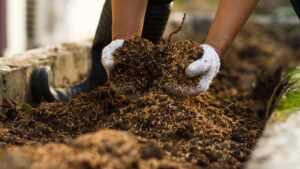
Here’s how to get the balance right:
- Add a variety of materials. Mix roses with leaves, twigs, or shredded paper.
- Use a ratio of 1:3. Aim for one part greens to three parts browns.
- Layer them. Alternating layers help decompose evenly.
H3 Heading: Ensuring Proper Aeration
Ensuring Proper Aeration
A compost pile needs air to speed up decomposition.
Without air, compost turns smelly.
- Turn your compost. Use a fork to mix it every few weeks.
- Create air pockets. Add bulky materials like twigs or straw.
H3 Heading: Maintaining Moisture Levels
Maintaining Moisture Levels
Your compost should feel like a wrung-out sponge—moist but not wet.
Here’s how to monitor moisture:
- Check regularly. Touch your compost to feel its wetness.
- Add dry materials. If too wet, mix in more browns.
- Water sparingly. If too dry, sprinkle water lightly.
Troubleshooting Compost Issues
Recycling old roses into compost can enrich your garden’s soil.
Yet, certain issues might arise.
Smart moves help your compost thrive.
Keep it disease-free. Remove bad smells. Make it faster.
Let’s troubleshoot these compost challenges.
Dealing With Disease And Pests
Roses may bring pests or disease to your compost pile.
Look for signs like spots on leaves or wilted stems.
Use these steps:
- Inspect the roses before adding to compost.
- Remove diseased parts.
- Avoid composting seriously sick plants.
- Maintain a hot compost to kill pathogens.
Managing Unpleasant Odors
Bad smell means something is off.
Your compost should smell earthy.
- Too much green waste causes stink. Balance it.
- Add browns like dry leaves or cardboard.
- Turn the pile to increase oxygen.
- Water right. Too wet or dry spells trouble.
Accelerating Compost Decomposition
Speed up decomposition; get compost faster.
- Cut or shred roses for quicker breakdown.
- Stir your pile to get air in.
- Keep compost moist like a wrung sponge.
- Add compost activators for a boost.
Alternatives To Traditional Composting
Green thumbs often look for sustainable ways to enrich their gardens.
Composting is a favored method, and old roses can contribute.
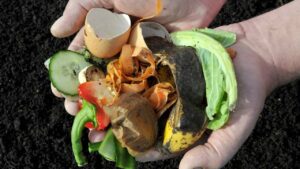
Yet, there’s more to composting than the traditional pile in the backyard.
Explore these earth-friendly techniques that turn your waste into black gold for your garden!
Vermicomposting
Worms are the stars in vermicomposting.
This process uses red wigglers to break down kitchen scraps and garden waste, including wilted roses.
It’s ideal for small spaces and even indoors, producing nutrient-rich castings perfect for plants.
- Quick breakdown of organic material
- Produces high-quality compost
- Reduces household waste
Bokashi Fermentation
Bokashi fermentation is a speedy composting method.
It ferments waste, including your old roses, with a special bokashi bran.
This method seals off air to avoid odor, making it great for indoor composting.
Key steps include:
- Layering waste with bokashi bran.
- Sealing in an airtight container.
- Using the liquid produced to feed plants.
Keyhole Gardens
African-inspired keyhole gardens combine composting and gardening.
They have a central basket for composting, like old roses, while the surrounding garden bed benefits directly.
They are water-efficient and great for arid regions.
| Feature | Benefit |
|---|---|
| Central Composting Basket | Nutrients feed the soil |
| Raised Bed Design | Easy on the back |
| Compact Shape | Space-saving |
Each of these methods offers a unique way to recycle.
They can rejuvenate your garden, reduce waste, and help the environment.
Play a part in nurturing the earth, starting with your old roses and these innovative composting solutions.
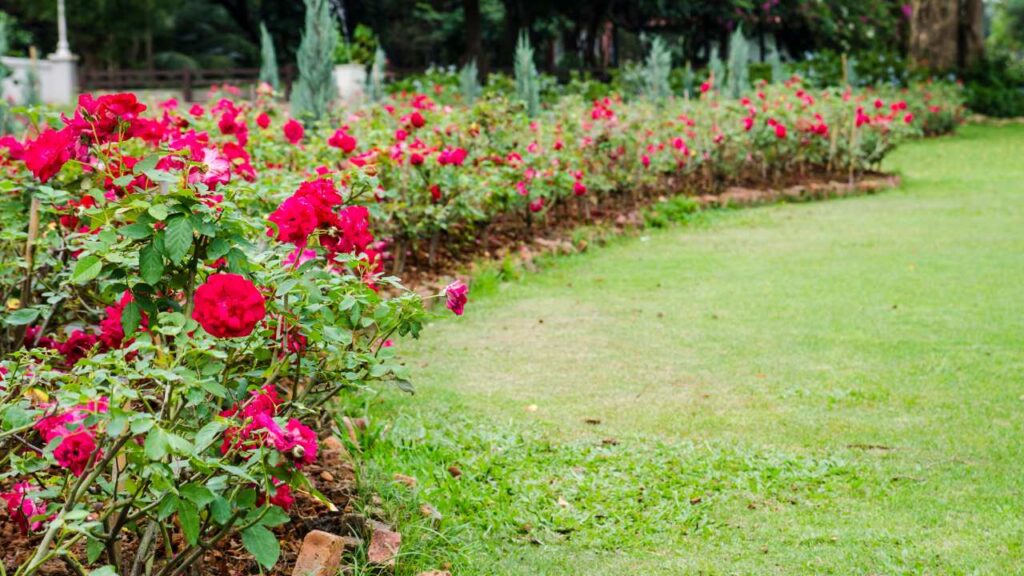
Credit: www.rosenotes.com
Frequently Asked Questions Of Can You Use Old Roses For Compost?
Can Dead Roses Go In Compost?
Yes, dead roses can be added to compost as they break down naturally and enrich the compost with organic material.
Avoid diseased plants to prevent spreading pathogens.
What Flowers Should Not Be Composted?
Avoid composting diseased plants, toxic or noxious flowers, and invasive species to prevent spreading issues in your garden.
Do Rose Thorns Break Down In Compost?
Yes, rose thorns can break down in a compost pile, but they may take longer to decompose than softer organic matter.
Can I Put Rose Cuttings In Compost?
Yes, you can place rose cuttings in your compost pile as they break down over time and contribute to the composting process.
Trim away any leaves or flowers before composting to speed up decomposition.
Conclusion
Old roses can indeed enhance your compost mix, enriching the soil with essential nutrients.
Remember to remove any diseased parts beforehand.
By composting these fragrant blooms, you not only recycle natural waste but also contribute to a healthier garden.
Embrace this eco-friendly practice for thriving plant life.

